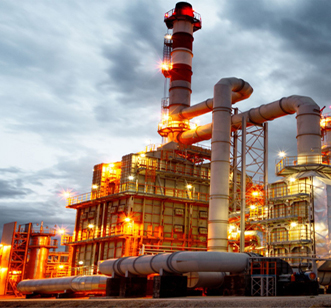

Petroleum Testing Analyses Chemical Composition of Crude Oil. Extracted Crude Oil is a mixture and is composed of multiple types of Hydrocarbons and a number of elemental impurities like Sulphur, Nitrogen, Oxygen, etc. Others are Heavy Metals, Sediments, and others. Moreover, petroleum Products present wide variations in terms of their Physical and Chemical Impurities depending on their origin. As such, Crude Oil needs to be refined for use.
Crude Oil Fractionation in Refineries majorly comprises three phases namely Separation, Conversion, and Purification. Individual Fractions like Petrol, Diesel, Naphtha, etc. The Products can be broadly grouped into two categories i.e. Fuel Oil and Lubricants based on different characteristics like Viscosity, Octane Number, and Distillation Range. Their attributes are critical factors in determining their Suitability for the use they are intended for, Storage, Transportation, etc.
EFRAC has considerable expertise in Quality Testing of Petroleum Products for Clients in Petroleum and Associated Sectors in conformance with Regulatory Standards.

Petroleum Testing
WET CHEMISTRY:
• Parameters • TAN (Total Acid Number) • Total Base Number (TBN) • Water Content • Gross Calorie Value • Sulphur • Sulphated Ash • Sediment
INSTRUMENT:
• Flash Point • Fire Point • Viscosity • Pour Point • Smoke Point
• Stack Sampling Kit • Dioxin-Furan Sampling Kit • Orsat Apparatus • Flue Gas Analyser • EPA NO, Apparatus • VOC Sampling Kit • Barometer • AAS-VGA/GTA • ICP-MS • HPLC • HS-GC-FID • GC-MS MS (QQQ) • HR-GC HR-MS • lon Chromatography • Automatic Rotavapour • Auto Soxhlet Extractor • UV Visible Spectrophotometer • Analytical Balance
• ASTM
• ISO
• Indian Standards (IS)
• International Petroleum Test Methods (IP)